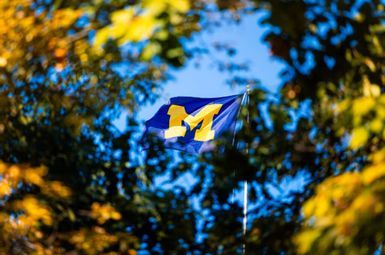
The Mellon Foundation has awarded nearly $4 million in a first-of-its kind grant to bolster the University of Michigan’s leading work in environmental justice.

Though everyone should have equal access to a healthy built environment, long-standing discriminatory practices have crowded racial and ethnic minorities into areas disportionately closer to toxic waste facilities and farther from green spaces. Concurrently, aging pipeline infrastructure and the impacts of legacy coal and oil power plants threatens these communities’ access to clean water and air. University of Michigan researchers are focusing on how environmental degradation affects different communities differently and working at the grassroots level to highlight environmental injustices wherever they exist. Key to this effort are analysts at Poverty Solutions, the Urban Energy Justice Lab (UEJ), the Center for Sustainable Systems and the Center for Low Carbon Built Environment.

The Mellon Foundation has awarded nearly $4 million in a first-of-its kind grant to bolster the University of Michigan’s leading work in environmental justice.
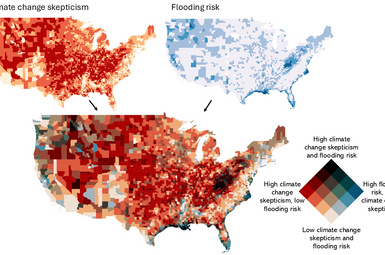
In certain parts of the U.S., the ability of residents to prepare for and respond to flooding is being undercut on three different levels.

Not all of us can afford to wear the latest styles fresh from the world’s maisons, so we often turn to fast-fashion retailers in order to participate in aesthetic trends. But our planet cannot sustain these habits, which cause an enormous amount of textile waste that unfairly burdens communities in the global South and actively harms the environment.
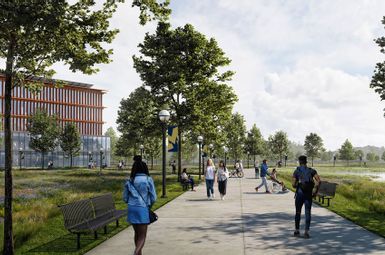
At the core of Campus Plan 2050 is a commitment to sustainability. The initiative proposes innovative infrastructure solutions, including geo-exchange systems designed for efficient heating and cooling through ground-source heat pumps, as well as extensive building retrofits that enhance energy efficiency and sustainability, and efficiency upgrades to the transit system.
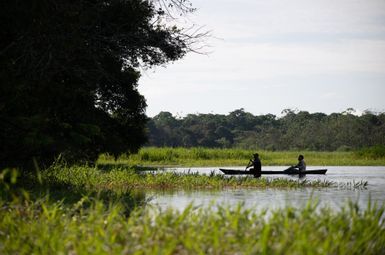
Hundreds of terrestrial and aquatic animal species live in the Boca do Mamirauá Reserve, located in the upper reaches of the Amazon, at the confluence of the Solimões and Japurá rivers. It is the first destination of the U-M Pantanal Partnership students this year.

The University of Michigan Center for Sustainable Systems (CSS) and U-M's Naval Architecture and Marine Engineering have been awarded a $199,993 grant from the State of Michigan to develop a Michigan maritime strategy focused on climate action.
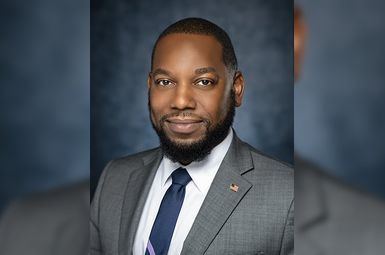
"Energy justice is this concept that really looks at how do communities participate in both the health environment and social impacts of our energy system, recognizing that the energy system has had certain burdens on communities. And so environmental justice is really saying that all communities, regardless of race and income and geography, should be afforded a clean environment."

The pathway to improving the health of hundreds of thousands of residents in Michigan’s largest cities is laid out in a new information hub that provides a panoramic look at the major factors impacting the wellbeing of these individuals.
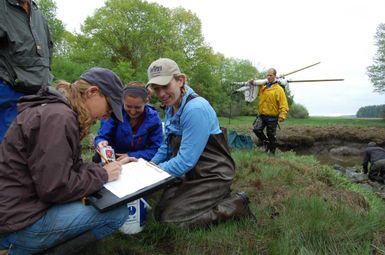
U-M has received a $25 million grant from the National Oceanic and Atmospheric Administration to support collaborative research initiatives addressing critical environmental challenges in U.S. coastal communities.
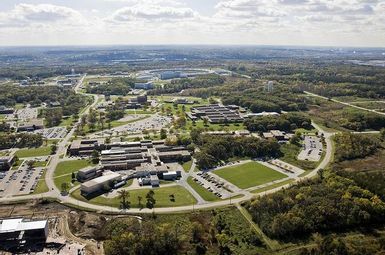
Maximizing the benefits of clean energy requires new ways to store it, and U-M engineers will partner in a new research hub created by the U.S Department of Energy (DOE), designed to develop and further battery innovations.
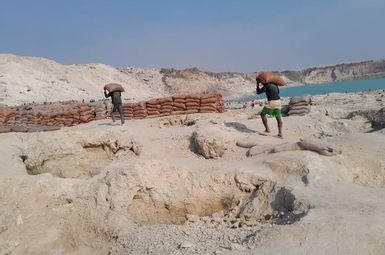
Artisanal and small-scale mining plays a critical role in supplying the world with minerals vital for decarbonization, but this kind of mining typically lacks regulation and can be socially and environmentally harmful.
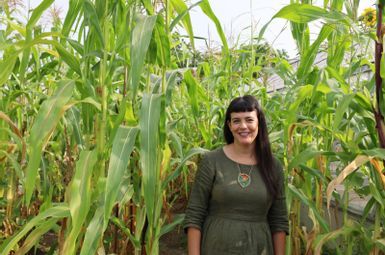
Maples is an Anishinaabe seed keeper, educator, and community organizer who has dedicated over a decade of work to Indigenous food sovereignty and justice.
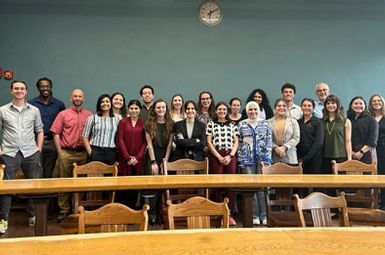
In collaboration with the Michigan Climate Action Network (MiCAN) and Michigan Environmental Justice Coalition (MEJC), a group of 20 selected U-M graduate students recently published a comprehensive report about Michigan’s public power options.

For carbon capture and utilization (CCU), public support depends on which aspect of the technology is being considered and which people are considering it, according to a new study conducted by researchers from University of Michigan and other institutions.

Each year, hundreds of thousands of Michigan parents worry whether they can afford to feed their children. Increased food prices, the state’s housing crisis, and the end of COVID-era financial support have all led to more Michigan families experiencing food insecurity today than before the pandemic.

Faced with an ecological crisis, public health emergencies and socioeconomic inequities, agroecology emerges as a transdisciplinary beacon of hope.
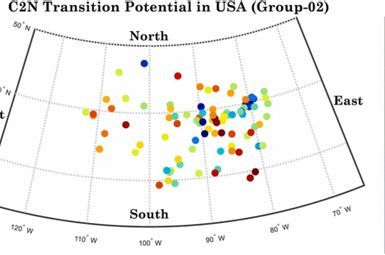
An assessment ranks the feasibility of converting 245 operational coal power plants in the U.S. into advanced nuclear reactors, providing valuable insights for policymakers and utilities to meet decarbonization goals, according to a new study by University of Michigan researchers.

Traffic pollution emerges as a lead exacerbator for ailments that come with aging.
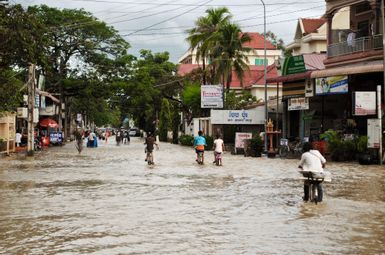
A recent University of Michigan study exposes a gap in sociology: a lack of focus on climate change. Societies fuel and face the consequences of this crisis, but sociology as a discipline appears insufficiently engaged with the issue, says Sofia Hiltner, U-M doctoral candidate in sociology.

Nestled by the St. Clair River, a small rural neighborhood in St. Clair Township, Michigan, is surrounded by a high concentration of hazardous crude oil and natural gas facilities. For decades, Murphy Drive residents have been exposed to unreported chemical releases, oil spills, poor air quality and harmful odors.
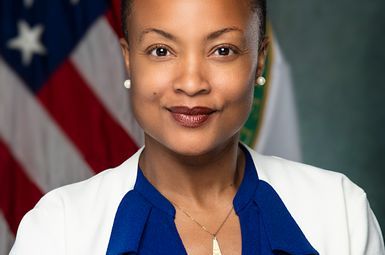
Currently the director of the Office of Energy Justice and Equity and the secretarial adviser on equity at the U.S. Department of Energy, and formerly the department’s chief diversity officer, Baker will advance sustainability education and research across U-M schools and colleges.

Converting home heating systems from natural gas furnaces to electric heat pumps is seen as a way to address climate change by reducing greenhouse gas emissions. But a new U-M study of 51 Southeast Michigan households shows that switching to efficient, cold-climate heat pumps would increase annual utility bills by an average of about $1,100.
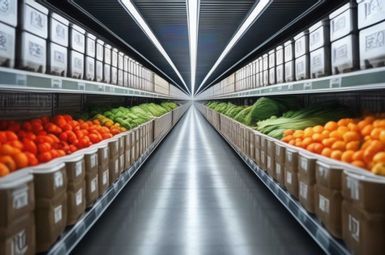
About a third of the food produced globally each year goes to waste, while approximately 800 million people suffer from hunger, according to the U.N.’s Food and Agriculture Organization.
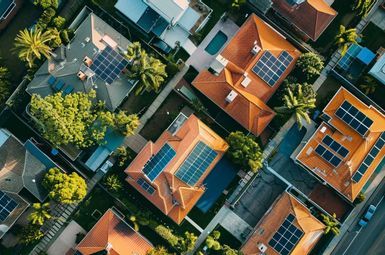
According to a U-M survey, 86% of respondents either strongly or somewhat support adding rooftop solar panels. The survey found some regional variation: Rooftop solar drew support from 83% of leaders in the Upper Peninsula, while garnering 89% support from southeastern Michigan officials.
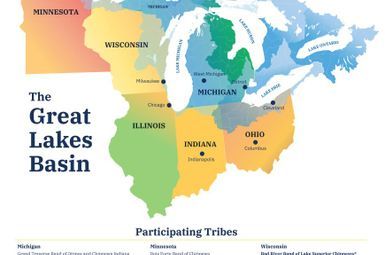
“Given that we sit in the heart of the Great Lakes and 21% of the world’s fresh surface water, we wanted to explore the region’s plans to identify the highest-impact, most innovative and scalable multi-state opportunities. We looked for what was working, to inform ways to accelerate community-based climate action."

“This work centers on the need to more actively link visual communication with advocacy around accessible design and move toward effective methods of communicating with, and on behalf of, audiences commonly overlooked by the built environment, It prioritizes another aspect of accessibility that is approachable and friendly and invites a diverse audience into an inclusive conversation.”
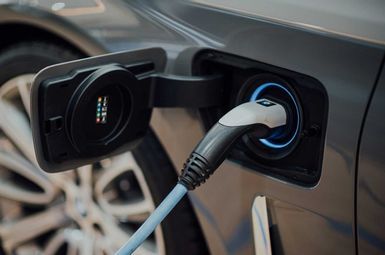
Local officials across Michigan increasingly view electric vehicle infrastructure planning as relevant for their governments, though many cite too few public charging stations and costs associated with adding them as barriers to expansion.
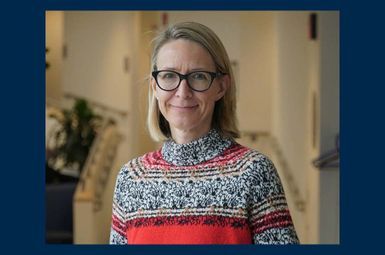
Extreme heat is America’s deadliest weather hazard, killing more people than hurricanes, floods, and tornadoes combined. Yet one obvious solution – increasing access to indoor cooling – is hindered by a lack of reliable data on which households have working air conditioning.
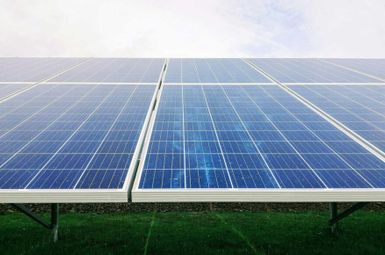
Among residents living within 3 miles of large-scale solar energy developments, positive attitudes about the projects outnumbered negative attitudes by a nearly 3-to-1 margin, according to a new survey of nearly 1,000 large-scale solar neighbors across the United States.

Researchers at U-M’s Rogel Cancer Center want to build a movement to understand how exposures to toxic metals, industrial pollution and “forever chemicals” called PFAS, are impacting the health and cancer risk of residents across Michigan.
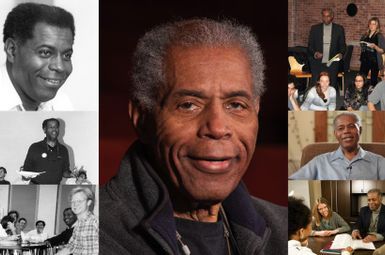
"For more than four decades, Bunyan taught and mentored SEAS students, modeling for them how to be effective advocates for equity and justice in communities that face environmental racism. Thanks to Bunyan’s tireless passion for creating change, his legacy as an environmental justice pioneer will live on in future generations of advocates.”

A new data map showcasing diverse indicators of poverty and well-being throughout Michigan highlights the key challenges confronting residents in different parts of the state and suggests interventions for the state’s most critical needs.
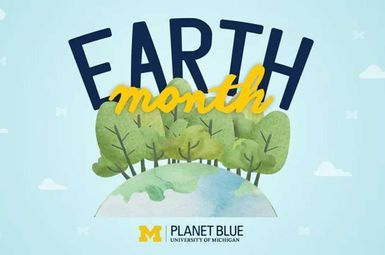
U-M is marking late March and all of April with a series of events focused on sustainability and climate action, continuing a tradition that began with the first “Teach-In on the Environment” in 1970—which grew into what is now known as Earth Day.
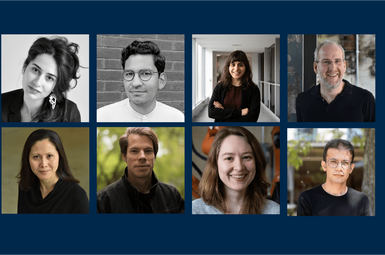
What materials and methods will allow us to design and construct low-carbon buildings? How can architects and designers promote social justice through community ownership of land? Through its Pressing Matters grant program, Taubman College has funded five faculty-led research and creative practice projects that address these questions.
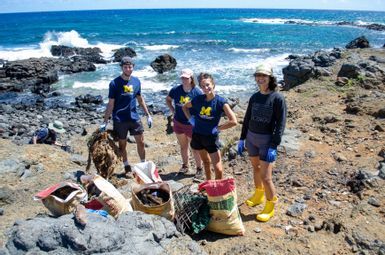
Spearheaded by SEAS PhD candidate Malu Castro, whose family is from Moloka‘i, the work of the first project supports one of the largest Land Back efforts in the modern era of the movement, and the second contributes to fostering and maintaining the longstanding tradition of subsistence agricultural production and other efforts to promote food sovereignty on the island.
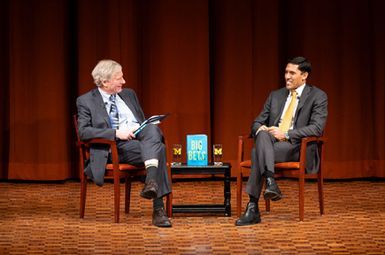
“Often we look at climate change or widespread human poverty or these deep inequities that hold so many communities back generation after generation, and we say to ourselves, these challenges are too complex. I’m just one person; what can I do to really make a difference?”
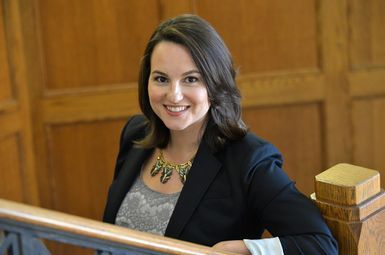
The United States recently passed major climate change laws, such as the Infrastructure Investment and Jobs Act (IIJA), the Inflation Reduction Act of 2022 (IRA), and the CHIPS and Science Act, which allocate funding with a goal of expanding energy-transition initiatives. Analysts suggest new investments could reduce greenhouse gas emissions by more than 40% below 2005 levels by 2030.
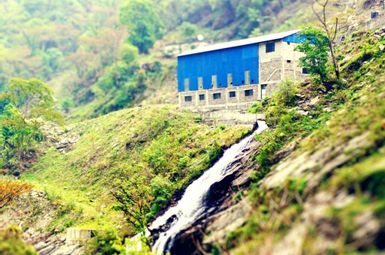
Four newly awarded sustainability “catalyst grants” at U-M are piloting innovative ways to bolster climate resilience and sustainability. Funded by the U-M Graham Sustainability Institute, these projects will explore renewable energy deployment in Nepal, climate justice in the Midwest, textile recycling innovation and equitable transportation planning.
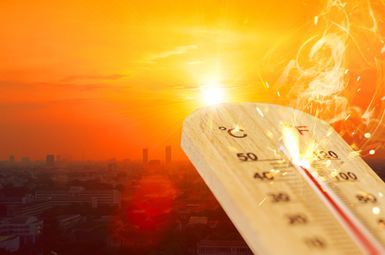
"“And the warming will continue to accelerate until we halt the burning of fossil fuels. This means continued worsening extreme heat and heat waves, but also many other worsening climate extremes driven by warmer temperatures. More severe droughts, more intense rainfall, more devastating hurricanes and bigger, more widespread wildfires."
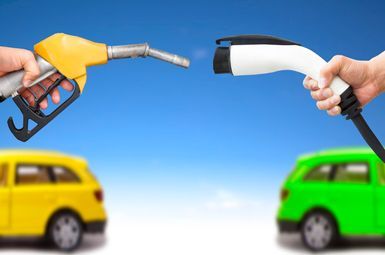
Is it actually cheaper to own an electric vehicle instead of a gas vehicle? It depends. U-M researchers say that where you live matters. For instance, a midsize SUV costs more to own in Detroit than in San Francisco—one of the most expensive cities in the country.
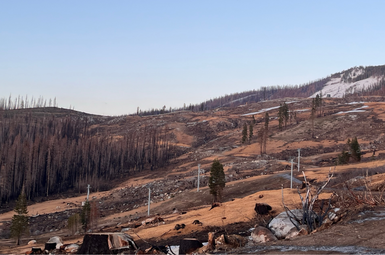
Rackham student and sociologist Joyce Ho’s research seeks to understand homeowners’ experiences and insurance companies’ responses in the aftermath of forest fires in northern California.
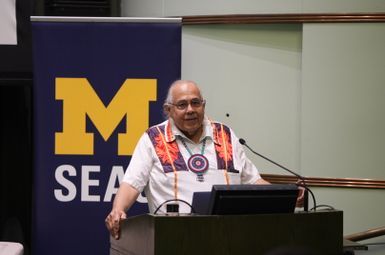
The need for a compact came when, twenty-five years ago, a Canadian company decided they could fill tanker ships with Great Lakes water to sell to countries with water shortages. Wanting to protect the lakes, the Great Lakes states, along with Ontario and Quebec, began the complex negotiations that would lead to the formal agreement detailing how they’d work together to manage as well as protect the Great Lakes.
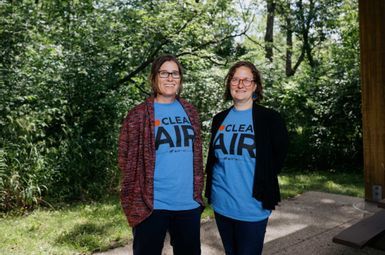
The Environmental Health Research-to-Action Academy is a community-academic partnership focused on building skills and intergenerational knowledge in environmental health, community science and policy advocacy to address cumulative environmental exposures in the nearby communities.
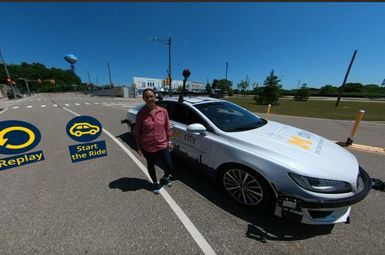
Autonomous and electric vehicles can be a positive force for people and the planet, but widespread gains require government incentives and investment to ensure access for users across the economic spectrum.

Associate Professor Tony Reames will be returning to the University of Michigan School for Environment and Sustainability (SEAS) from his leave of absence at the Department of Energy (DOE), where he served as the Principal Deputy Director for State and Community Energy Programs and the DOE’s Deputy Director for Energy Justice. Reames will become the Tishman Professor of Environmental Justice at SEAS and serve as the new Director of the SEAS Detroit Sustainability Clinic, effective January 2024.